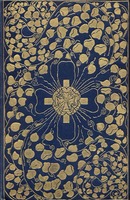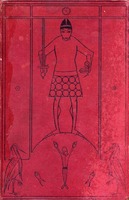Mysticism, Celtic Myth & the Occult
The 1890s were a time of great turmoil and rapid development for the young poet William Butler Yeats. During this period, he worked on a number of editorial projects and published several collections of poetry. The influences during this period of his life would remain relevant throughout his work: Celtic myth, William Blake, and the occult. As Yeats became more deeply involved first in Theosophy (religious philosophy or speculation about the nature of the soul based on mystical insight into the nature of God) and then in Hermeticism (the study and practice of occult philosophy and magic, associated with writings attributed to the god Hermes Trismegistus) and the correspondences among those traditions, the writings of Blake and Celtic myths became more apparent to him. From those materials he began to construct a unique occult symbolic system for a proposed Celtic Mystical Order.
Yeats’s occult philosophy was set forth in his 1901 essay “Magic.” Although it was much elaborated in A Vision (1925), it was never rescinded:
I believe in the practice and philosophy of what we have agreed to call magic, in what I must call the evocation of spirits, though I do not know what they are, in the power of creating magical illusions, in the visions of truth in the depths of the mind when the eyes are closed; and I believe in three doctrines, which have, as I think, been handed down from early times, and been the foundations of nearly all magical practices. These doctrines are --
(1) That the borders of our minds are ever shifting, and that many minds can flow into one another, as it were, and create or reveal a single mind, a single energy.
(2) That the borders of our memories are as shifting, and that our memories are a part of one great memory, the memory of Nature herself.
(3) That this great mind and great memory can be evoked by symbols.
---Ideas of Good and Evil, p. 29
His literary output during this early period was prolific. By 1895, A. H. Bullen had published a volume of his collected works, and he was recognized as one of the major living writers in the English language. Despite his ultimate lack of success in establishing a Celtic Mystical Order, Yeats’s occult system remained the framework for most of his writings. Like the druid bards of his early poetry, Yeats came to see himself as an Irish visionary who would revive his country’s dormant spiritual heritage.


